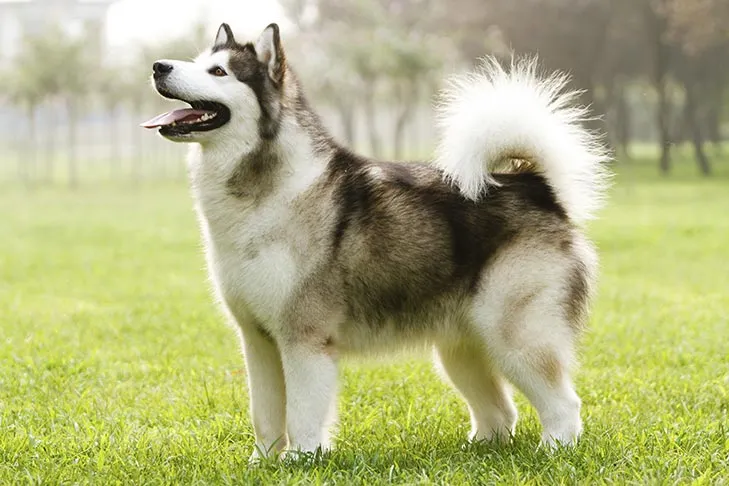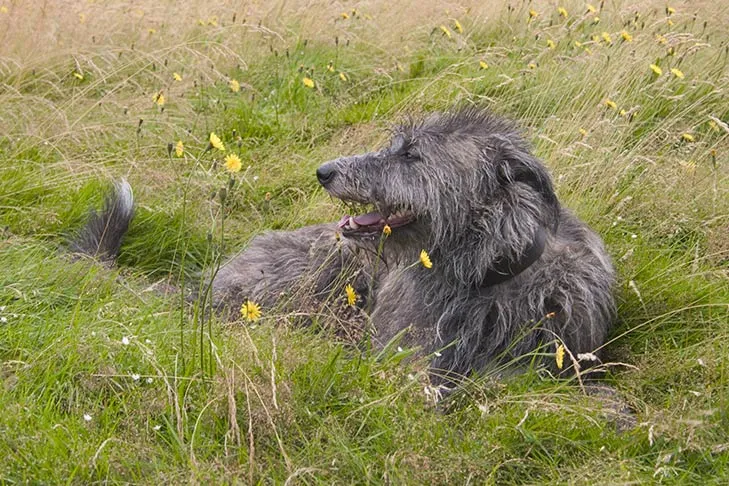Owning a large breed dog brings immense joy, but also significant responsibilities, particularly when it comes to their diet. Providing the right nutrition is fundamental to ensuring your big companion leads a long, vibrant, and active life. Among the myriad of choices, Healthy Dry Dog Food For Large Breeds stands out as a practical and beneficial option for many owners. The sheer volume of options on the market can be overwhelming, with every brand promising optimal health. To navigate this landscape successfully, it’s crucial to understand the specific dietary requirements of large dogs, from their rapid puppy growth to their golden senior years.
A well-formulated, high-quality dry diet is one of the most impactful decisions you can make to support your large dog’s health and mitigate potential disease risks. This comprehensive guide will delve into the nuances of large breed nutrition, focusing on how healthy dry dog food can meet these unique demands and help your beloved pet thrive.
Understanding the Nutritional Needs of Large Breed Dogs
Dogs, regardless of size, require a balanced intake of essential nutrients, including proteins, fats, carbohydrates, vitamins, and minerals. Commercial dry dog foods are designed to provide a complete and balanced diet, incorporating a mix of meats, grains, vegetables, and fruits to meet regulatory nutritional standards. A high-quality dry kibble ensures these components are easily digestible, allowing your large dog to absorb the nutrients they need daily.
While the basic nutritional components are universal, large dogs have distinct dietary considerations compared to their smaller counterparts. Large breed puppies, for instance, demand specialized diets to prevent certain health complications. Adult large breed dogs, on the other hand, require careful dietary management to guard against issues like orthopedic diseases, obesity, and bloat. Nutrition plays a pivotal role in the prevention and management of all these conditions. Always consult your veterinarian when considering dietary changes or exploring alternative feeding regimens, as they can provide tailored advice for your dog’s specific needs.
Essential Dry Food for Large Breed Puppies
The growth phase for large breed puppies is both rapid and prolonged, meaning their nutritional requirements are incredibly sensitive. A puppy weighing just a pound at birth can balloon to 150 pounds in a mere 18 months. This accelerated development makes large breed puppy dry food a critical choice, as imbalances, deficiencies, or excesses in nutrients and calories can severely compromise their health.
Uncontrolled, rapid growth is particularly detrimental to large breed puppies. It has been strongly associated with Developmental Orthopedic Disease (DOD), a group of conditions that includes hip and elbow dysplasia, osteochondrosis, and hypertrophic osteodystrophy. Overnutrition is a significant contributor to excessive growth, underscoring the importance of selecting a dry kibble formulated specifically for large breed puppies. These specialized formulas are typically lower in fat, calcium, phosphorus, and vitamin D than regular puppy diets, designed to support a slower, more controlled growth rate.
You might instinctively believe that large breed puppies need more calcium for bone development, but studies have actually linked high levels of calcium and phosphorus to an increased risk of DOD. Limiting the intake of these minerals, along with vitamin D, helps reduce the incidence of orthopedic issues. Similarly, controlling caloric intake through appropriate portions of healthy dry dog food helps moderate their growth speed. For general puppy health, understanding the best food for different sizes is key.
 Dogue de Bordeaux puppy getting a drink of water outdoors on a hot day.
Dogue de Bordeaux puppy getting a drink of water outdoors on a hot day.
Veterinarians strongly advise against free-feeding large breed puppies, as this practice has also been connected to DOD. Instead, offer several smaller meals throughout the day and consistently monitor their weight to ensure they remain within a healthy range. Your veterinarian can assist you in determining the ideal weight range for your dog’s specific breed.
Choosing Healthy Dry Dog Food for Adult Large Breeds
Once your large breed dog transitions from puppyhood to adulthood, their dietary needs evolve, necessitating a switch to an adult formula. This is an excellent opportunity to discuss recommendations for the best healthy dry dog food for large breeds with your veterinarian. They can offer invaluable insights based on your dog’s breed, size, activity level, and any emerging health concerns, helping you make an informed decision for their ongoing well-being.
 Great Pyrenees head portrait outdoors in the fall.
Great Pyrenees head portrait outdoors in the fall.
Dry Dog Food for Senior Large Breeds
The market for senior-specific dog food is relatively new, and currently, there isn’t an official “senior stage” approved by regulatory bodies like AAFCO or the FDA. This means that many “senior” dog foods haven’t undergone the same rigorous testing as formulas for other life stages. However, this doesn’t diminish their potential benefits. Adult, all-life-stage, and senior formulas can all be appropriate choices for an aging large breed dog.
As large dogs age, they often develop various health issues requiring veterinary attention and maintenance. In such cases, a prescription dry diet might be the most suitable option, as these veterinary-approved foods are precisely formulated to address specific conditions. Always consult your vet to determine the best dry food for your senior large breed dog.
Common Health Concerns in Large Breeds and the Role of Dry Food
Large and giant breed dogs are predisposed to certain musculoskeletal and orthopedic conditions, including hip dysplasia, arthritis, and osteochondrosis. These issues are influenced by genetics, exercise, and, significantly, nutrition. While hereditary factors are largely beyond an owner’s control (beyond responsible breeding choices), you have direct influence over growth rate, exercise, and diet.
Feeding an appropriate healthy dry large breed puppy diet can substantially reduce the risk of DOD. As adults, maintaining a healthy weight through a balanced diet and regular exercise is paramount. High-quality dry dog food for large breeds, with the correct balance of nutrients, helps support joint, muscle, and bone health, preventing premature breakdown. Many adult large breed formulas even include joint supplements like glucosamine to further support orthopedic health.
Obesity in Large Dogs
Obesity is a widespread problem, affecting over half of American dogs. For large breeds, the dangers are magnified, as excess weight significantly increases their risk of developing orthopedic diseases later in life. The added strain on joints, muscles, and bones can lead to severe conditions impacting their mobility and quality of life. Obesity is also linked to other serious health problems, including type 2 diabetes, kidney disease, and high blood pressure. Choosing a healthy dry dog food with appropriate caloric density and controlling portion sizes is crucial for preventing and managing obesity. If your dog struggles with weight, specialized diets can help them achieve a healthier body condition.
Bloat in Large Dogs
Gastric Dilatation and Volvulus (GDV), commonly known as bloat, is a life-threatening condition that disproportionately affects large and giant breed dogs. It occurs when the stomach rapidly fills with gas and can twist, cutting off blood flow. Bloat can be fatal within hours, making prevention critical. Here are steps you can take, often aided by appropriate dry food:
- Multiple Meals: Feed several smaller meals daily instead of one large meal to prevent rapid eating.
- Floor-Level Feeding: Avoid raised feeders.
- Moderate Fat Content: Opt for dry foods where oils and fats are not among the first four ingredients.
- Large Kibble Size: Larger kibble can encourage slower eating and reduce gulping air.
- Avoid Post-Meal Exercise: Prevent strenuous activity for 1-2 hours after eating.
A healthy dry large breed dog formula is generally the best option to help mitigate the risk of bloat. Always seek out reputable manufacturers offering large breed-specific formulas and don’t hesitate to ask your veterinarian for their recommendations.
 Alaskan Malamute standing in the grass.
Alaskan Malamute standing in the grass.
The Advantages of Healthy Dry Dog Food for Large Breeds
Dry dog food remains the most popular choice for dog owners, and for good reason, especially for large breeds. It’s often more economical and offers significant convenience. Storing dry kibble is straightforward, and it’s easy to measure and transport, making it ideal for travel or boarding.
One of the often-overlooked benefits of dry dog food is its potential impact on dental health. The abrasive action of chewing crunchy kibble can help reduce plaque buildup and rub off tartar from your dog’s teeth. This mechanical cleaning is a natural way to support oral hygiene, though it should not replace regular dental care. For dogs with existing dental issues, choosing the right food becomes even more critical. Dry food also serves as a convenient and healthy training treat; simply break off small pieces instead of relying solely on high-calorie treats.
Deciphering Healthy Dry Dog Food Labels
Dog food labels are a treasure trove of information, but they can be perplexing. With a vast selection of large breed-specific dry foods available, knowing what to look for is essential. Here are key points to keep in mind when researching and selecting a healthy dry dog food:
- “Complete and Balanced”: Always choose a dry dog food explicitly labeled “complete and balanced.” This indicates it meets the nutritional requirements for your dog’s life stage, as established by AAFCO.
- Clinically Tested: Prioritize dry foods that have undergone clinical feeding trials, proving their efficacy and nutritional value.
- Beware of Buzzwords: Ignore unregulated marketing phrases like “all natural” or “human-grade ingredients,” which offer little guarantee of actual quality.
- Fat Content: As a general rule for large breeds prone to bloat, avoid dry foods that list oils or fats among the first four ingredients, indicating a potentially high-fat content.
 Scottish Deerhound laying in tall grasses.
Scottish Deerhound laying in tall grasses.
While labels don’t explicitly rate ingredient quality, the ingredient list reveals the sources of proteins and carbohydrates. This information is invaluable for owners dealing with food allergies or sensitivities in their dogs, or for those seeking specific protein sources.
How Much Healthy Dry Dog Food Should You Feed a Large Dog?
There’s no single answer to how much dry food a large breed dog needs. Every dog’s caloric requirements are unique, influenced by their age, activity level, metabolism, and overall health. While the nutrition label on your dog’s food provides general guidelines, you’ll likely need to adjust these to suit your individual dog.
The best approach to determining appropriate portion sizes is to consult your veterinarian. Vets use a “body condition score” (BCS) to assess if your dog is at an ideal weight, overweight, or underweight. Based on their BCS, your vet can help you tailor the feeding amounts of your healthy dry dog food to achieve and maintain optimal weight.
 Bernese Mountain Dog puppy lying on a rug indoors with a yellow ball.
Bernese Mountain Dog puppy lying on a rug indoors with a yellow ball.
The Cost-Effectiveness of Quality Dry Dog Food
Large breed dogs naturally consume larger quantities of food, meaning their feeding costs are higher than those for small breeds. This is an important financial consideration for anyone contemplating acquiring a large breed puppy.
While it might be tempting to opt for cheaper dry food to save money, it’s crucial to investigate the quality. There are many excellent dry dog foods across various price points, but choosing a product solely based on its low cost can be a false economy. Investing in high-quality, healthy dry dog food for large breeds is an investment in your pet’s long-term health and well-being. Poor-quality food can lead to health issues that ultimately incur significant veterinary expenses, proving that sometimes, you truly get what you pay for. Beyond just food, ensuring your dog’s overall health also includes essential preventative care like regular parasite treatments. Understanding different options for flea and worm treatments is part of responsible pet ownership.
The Best Healthy Dry Dog Food for Your Large Breed
There isn’t one universal “best” brand of healthy dry dog food for all large breeds. Ultimately, it falls to you, the owner, to thoroughly research large breed nutrition and work with your veterinarian to identify the most suitable dry food for your specific dog. Your vet can assist you in developing a comprehensive, lifelong nutrition plan that evolves with your dog through all stages of life, significantly enhancing their chances for a long, healthy, and happy existence.
